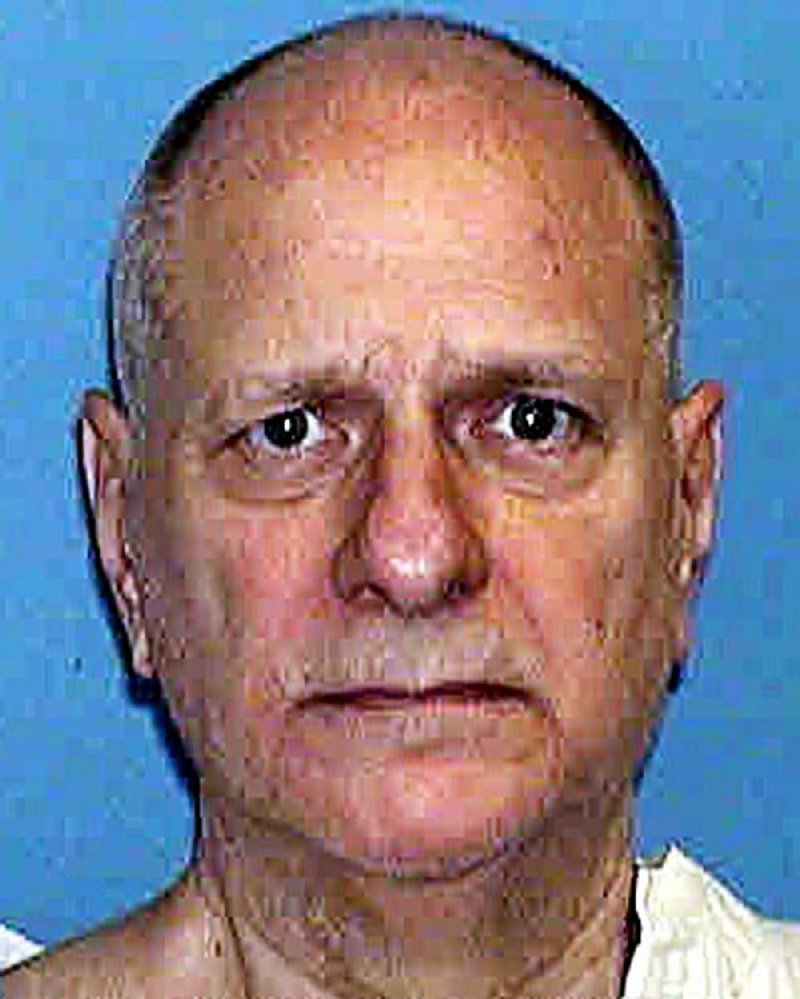The Arkansas Supreme Court on Thursday unanimously upheld the convictions of a former emergency room physician and self-described "black ops" mercenary convicted of two Conway execution-style murders.
Richard Conte, 65, killed Carter Elliott and Timmy Robertson in May 2002 but wasn't charged with the crime until 2011. He asked the court to throw out the convictions and two consecutive life sentences, saying that the delayed prosecution had prevented him from receiving a fair trial. In addition, he questioned the reliability of testimony from "jailhouse snitches" and argued that there was no direct evidence linking him to the crime.
Conte, who had previously been convicted of kidnapping his estranged wife in June 2002, also said that testimony about the kidnapping should have been withheld from jurors.
Conte's wife at the time, Lark Swartz, had previously been married to the 49-year-old Elliott; she filed for divorce from Conte the same month that Elliott was murdered.
Prosecutors claimed that Conte was jealous and suspicious of Elliott's ties to Swartz.
Elliott and Robertson, 25, were found facedown with close-range bullet wounds in their heads from a powerful and rare type of bullet. Detectives said the shooter used towels to muffle the gunshots, a technique that shielded the victim from powder burns.
After his June 2002 arrest regarding the kidnapping, detectives found guns, knives, silencers, mercenary magazines, war movies and books with titles like Quiet Killers, Silenced Weapons in War and Espionage and The History of Torture and Executions.
They also found a collection of maps of central Arkansas, including a written address for Elliott's home, and a list of radio frequencies for central Arkansas law enforcement agencies.
Though they found the rare type of ammunition that was used to kill Elliott and Robertson, none of the weapons they found tested positive in the shooting.
Two prior Faulkner County prosecutors declined to accuse Conte of murder, but their successor, Cody Hiland, filed charges, days before Conte was to complete his kidnapping sentence.
Although they lacked eyewitnesses and never found the murder weapon, state prosecutors used testimony from two men who were incarcerated with Conte to strengthen their case, both men claiming that Conte had bragged about the killings.
Conte's attorneys argued that the two witnesses were criminals who knew how to "manipulate the system" and that their testimony was so unbelievable that Judge Charles Clawson Jr. should have granted Conte's motion to dismiss the case.
The Supreme Court sided with state attorneys who argued that it was up to jurors to determine the credibility of the witnesses.
Conte also argued that he'd been harmed by the delay in prosecuting the case. An alibi witness who claimed to have seen Conte in Nevada on the day of the murder had died in the interim, he said.
The justices said there was no evidence of an intentional delay to "gain a tactical advantage."
The Supreme Court also upheld the lower court's decision to block some testimony concerning other people that Conte said were potential suspects.
According to Conte, Elliott was involved in a marital affair and also had been beaten by a man who he owed a huge gambling debt.
But the Supreme Court said Conte had failed to produce "evidence to link any third party to the crimes."
Conte, now confined to a wheelchair because of health problems, remains at the Brickeys prison unit in Lee County.
Metro on 05/22/2015

